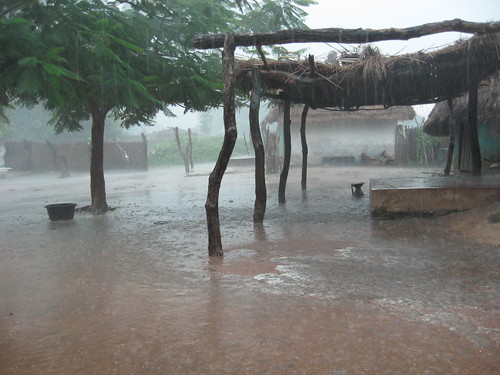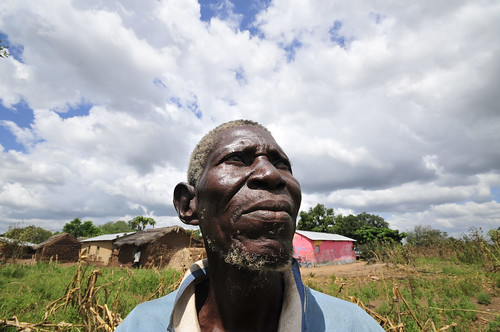Rainmakers Blessings in time of Drought in Malawi
Most of the African continent is semi-arid and prone extreme droughts; rainmakers are vital to the community.

|
| Rainmaking ceremonies were controlled by the Mbona Tribe |
Rainmakers are vital in Africa
No rain, no food. Food, as far as it comes from plants, whether cultivated or wild, is withered by droughts and ruined by floods, humankind throughout the ages, by magic has sought to regulate rain tried to break droughts and arrest excessive rains.
Rainfed agriculture in Malawi is used to describe farming practices that rely on rainfall for watering crops. Rainfed regions house the largest proportion of poor people in Malawi. Mbona Rainmaker worshipers in Africa sacred rainmaking ceremonies bring relief in times of drought, floods, and troubles.
Even though there is doubt with modern scientists toward rainmaking ceremonies, the practice remains popular in Malawi Africa. A rainmaker is an important person in the African community, performing rituals and wielding great power.
Many of these rainmaking practices originated as appeals and prayers to a supernatural being who controls the weather. When rain is needed, rainmakers take water from a spiritual part of a river, carry it into dry fields and there throw the water high into the air.
Rainmakers Khulibvi shrine is a symbol of authority to Rainmakers in Malawi Africa.
Rainmakers Mang'anja Tribe, Mbona worshipers offer sacrifices to their God in times of drought and troubles. Rain is essential for life. All living things need water to live.
If you control the water you control the very essence of life. The Khulibvi shrine is a symbol of authority if you were in control of the shine you controlled the lives of the people who are spiritually united with the religious shrine.
Mbona rainmaker history has several versions of rainmaking powers, however, two versions are widespread -
First Mbona Rainmaker History
Mbona was not a legible heir of chief Lundu and therefore he was never supposed to perform rain ritual dance. The entire legible heir performed the dance but rain did not fall.
The elders of the village suggested that Mbona should perform the ritual dance and the chief agreed. In the process of Mbona's dance-heavy rain felled and one of chief Lundu's son was killed by the lightning.
Chief Lundu was angry with the death of his son, therefore he sent his men to kill Mbona. Mbona was killed by Lundu's men at a mountain and his blood turned into a river. Before he died he ordered the men to construct a shrine on the mountain. Every chief sent his regular offerings to the shrine to ask for rains.
Second Mbona Rainmaker History
Mbona was a renowned figure with unworldly powers who lived in Malawi during the rise of the Lundu Kingdom. Mbona is said to have magic powers of bringing rain, creating wells of water on sandy lands, creating forests where they did not exist and hiding from enemies by turning into many types of living things.
Mbona's uncle Mlauli, who also had unworldly powers became jealous of his nephew and wanted to kill him. No matter how hard Mlauli tired, he could not kill Mbona.
One day Mbona finally was ready to die and told Mlauli and his enemies how to kill him; they cut his throat with a leaf of a tall reed. Mbona's head was cut off by the reed and placed at Khulubvi now located in the lower Shire Valley in Southern Region of Malawi.
No matter the version of the story, the Mang'anja tribe pay tribute to the sacred Shine of Mbona's head at Khulubvi. The Khulubvi Shrine is a small hut located in the interior of thick under bush and trees of the Lundu, Malawi. Followers of Mbona worship at Khulubvi still to this day maintaining the scared ground as their ancestors did hundreds of years ago.
Mang'anja are Chewas from the Southern region of Malawi. Chewa or Nyanja people are the largest ethnic group in Malawi with four historical groupings.Together we build awareness that boost harmony, education, and success, below are more links to articles you will find thought provoking.
- Deadliest routes for refugees
- Cooking with shea butter oil
- Worst serial killers recorded in history are women
- Indigenous healers and plants used
- Night running illness or magic
- What is back to Africa



